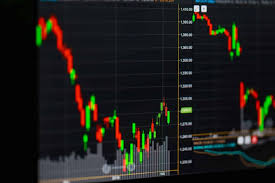Understanding How to Successfully Navigate the Forex Market

How Do You Do Forex? A Comprehensive Guide
Forex, short for foreign exchange, is the global market for trading national currencies against one another. It is the largest and most liquid financial market in the world. Understanding how to do forex trading can help you take advantage of market fluctuations, generate profits, and diversify your investment portfolio. This article will guide you through the basics of forex trading, the necessary strategies, and tips on becoming a successful trader. You can also explore more resources at how do you do forex trading webglobaltrading.com.
What is Forex Trading?
Forex trading involves the buying and selling of currency pairs. Each currency pair consists of two currencies, with one being the base currency and the other being the quote currency. For example, in the EUR/USD pair, EUR is the base currency, and USD is the quote currency. Traders speculate on the value of one currency against another, aiming to profit from the changes in exchange rates.
How the Forex Market Works
The forex market operates 24 hours a day, five days a week, and is decentralized, meaning it does not have a physical location or centralized exchange. Instead, trading occurs over-the-counter (OTC) through a network of banks, brokers, and financial institutions. The major trading centers are located in cities such as London, New York, Tokyo, and Sydney.
Getting Started with Forex Trading
- Choose a Reliable Forex Broker: Selecting a reputable broker is crucial for your trading success. Look for brokers that are regulated by recognized authorities and offer a user-friendly trading platform.
- Create a Trading Account: Once you have selected a broker, sign up for a trading account. Most brokers offer demo accounts where novice traders can practice with virtual money before committing real capital.
- Learn the Basics: Familiarize yourself with essential forex concepts such as pips, spreads, leverage, and margin. Understanding these terms will help you navigate the market more effectively.
Understanding Currency Pairs
Currency pairs are categorized as major, minor, and exotic pairs. Major pairs include the most commonly traded currencies, such as USD, EUR, GBP, and JPY. Minor pairs are less frequently traded, while exotic pairs involve a major currency paired with a currency from a developing economy. For instance, pairing the USD with the Turkish Lira (USD/TRY) is considered an exotic pair.
Technical and Fundamental Analysis
To succeed in forex trading, traders often rely on two main types of analysis: technical and fundamental.
Technical Analysis

Technical analysis involves evaluating past market data, primarily price and volume, to forecast future price movements. Traders use various chart patterns, indicators, and tools to identify trends and entry or exit points. Common tools include moving averages, RSI (Relative Strength Index), and Fibonacci retracements. Mastering technical analysis takes time but can significantly enhance your forex trading strategy.
Fundamental Analysis
Fundamental analysis examines economic indicators, news events, and geopolitical events to assess the strength of a country’s currency. Key indicators include interest rates, unemployment rates, GDP growth, and inflation data. Traders often stay updated with economic calendars to anticipate market reactions to scheduled reports and events.
Developing a Trading Strategy
A solid trading strategy is crucial for success in forex trading. Here are some popular strategies you can consider:
- Day Trading: Involves making numerous trades throughout the day, aiming to capitalize on short-term price movements.
- Swing Trading: Focuses on taking advantage of price swings that occur over several days or weeks.
- Position Trading: Involves holding trades for the long term, typically based on fundamental analysis.
- Scalping: A strategy that involves making small profits from minute price changes by executing very short-term trades.
Risk Management in Forex Trading
Risk management is an essential part of any trading strategy. Properly managing your risk can protect your capital and ensure long-term success. Here are some tips:
- Use Stop-Loss Orders: A stop-loss order automatically closes your trade when it reaches a predetermined loss level, limiting your exposure.
- Limit Leverage: While leverage can amplify your profits, it can also magnify your losses. Use leverage wisely and avoid over-leveraging your account.
- Only Risk a Small Percentage of Your Capital: Many traders follow the “1% rule,” which suggests risking no more than 1% of your trading account on a single trade.
Common Mistakes to Avoid in Forex Trading
Even experienced traders can make mistakes. Here are a few common pitfalls to watch out for:
- Lack of a Trading Plan: Entering the market without a clear strategy increases the likelihood of emotional decisions that can lead to losses.
- Emotional Trading: Trading based on emotions like fear or greed can cloud judgment. Stick to your analysis and strategy.
- Ignoring Economic News: Not considering the impact of economic news on currency prices can be detrimental. Always be informed about major events.
- Overtrading: Trading too frequently or with high volumes can lead to burnout and increased risk. Focus on quality over quantity.
Continuing Your Education as a Forex Trader
Forex trading is an evolving market that requires continuous learning. Utilize online resources such as webinars, trading courses, and forex forums to stay updated with market trends and improve your skills. Many successful traders share their strategies and insights, giving you a wealth of knowledge to tap into.
Final Thoughts
Forex trading can be both exciting and profitable if approached with the right mindset and preparation. Understanding the market, developing a sound strategy, and practicing effective risk management are essential for success. Remember to keep learning, be patient, and stay disciplined in your trading practices. With time and experience, you can navigate the forex market with confidence and make informed trading decisions.

Leave a Reply
Want to join the discussion?Feel free to contribute!